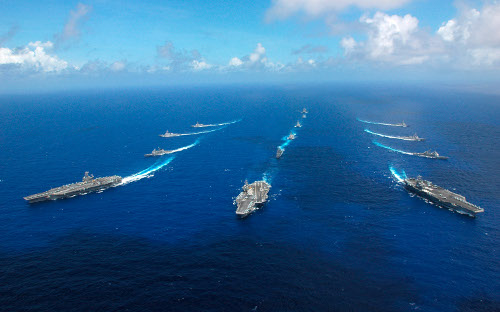
From Gordon England, James L. Jones & Vern Clark, the Wall Street Journal: The future security environment underscores two broad security trends. First, international political realities and the internationally agreed-to sovereign rights of nations will increasingly limit the sustained involvement of American permanent land-based, heavy forces to the more extreme crises. This will make offshore options for deterrence and power projection ever more paramount in support of our national interests.
Second, the naval dimensions of American power will re-emerge as the primary means for assuring our allies and partners, ensuring prosperity in times of peace, and countering anti-access, area-denial efforts in times of crisis. We do not believe these trends will require the dismantling of land-based forces, as these forces will remain essential reservoirs of power. As the United States has learned time and again, once a crisis becomes a conflict, it is impossible to predict with certainty its depth, duration and cost.
That said, the U.S. has been shrinking its overseas land-based installations, so the ability to project power globally will make the forward presence of naval forces an even more essential dimension of American influence.
Gordon England is a former secretary of the Navy. General James L. Jones is a former commandant of the Marine Corps, and chairman-designate of the Atlantic Council’s Brent Scowcroft Center on International Security. Admiral Vern Clark is a former chief of naval operations. (Photo: Wikimedia Commons)
Image: navalpower.jpg
